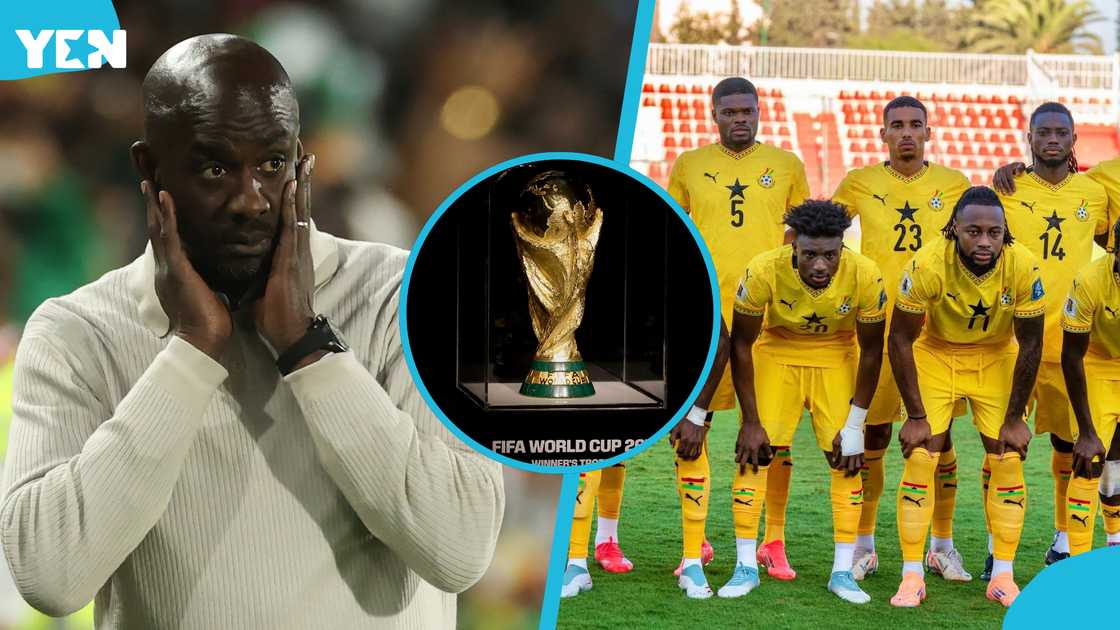The FIFA World Cup is more than a tournament; it’s a global festival where national dreams are forged. For Ghana, the journey of the Black Stars has been a rollercoaster of unforgettable highs and heart-wrenching lows. As the road to the 2026 World Cup in North America begins, qualification carries a weight that goes far beyond the pitch.
This is more than a quest for points; it’s a mission for redemption and a chance for a nation to unite behind its team on the world’s biggest stage.
Let’s dive into Ghana’s rich World Cup history, unpack what 2026 qualification truly means, and provide essential travel tips for Ghanaian fans planning the pilgrimage to Canada, the USA, and Mexico.
A Legacy of Pride and Pain: Ghana’s World Cup History

Ghana announced its arrival on the global stage with authority.
· 2006 Germany: Their debut was spectacular. Led by a young Stephen Appiah, they reached the Round of 16, beating the Czech Republic and the USA in a “Group of Death” before falling to Brazil.
· 2010 South Africa: This tournament cemented Ghana’s status as an African powerhouse. The Black Stars became the third African nation ever to reach the Quarter-Finals. The image of Asamoah Gyan’s missed penalty against Uruguay in the final seconds of extra time is etched in football history. The subsequent shootout loss was a national heartbreak, but the team’s performance was heroic.
· 2014 Brazil: Ghana showed flashes of brilliance but failed to advance from a tough group. The campaign, however, is remembered for the team’s unity and a thrilling 2-2 draw with eventual champions, Germany.
· 2022 Qatar: A tournament of transition and disappointment. A shock loss to Portugal was followed by a dramatic win over South Korea, but a defeat to Uruguay in a highly-anticipated grudge match ended their run prematurely.
This history makes the path to 2026 not just another qualification, but a critical chapter in the story of the Black Stars.
Why 2026 Qualification is a National Imperative
Qualifying for the first 48-team World Cup is non-negotiable for Ghana, and here’s why:
1. Redemption from 2022: The early exit in Qatar, especially the loss to Uruguay, left a bitter taste. 2026 is the prime opportunity to erase that memory and restore pride.
2. A Golden Generation’s Last Stand: While a new wave of talent is emerging, key players like Thomas Partey, André Ayew, and Jordan Ayew will likely see 2026 as their World Cup swansong. Qualifying would be a fitting tribute to their service.
3. Fueling a Football-Mad Nation: Success for the Black Stars galvanizes the entire country. It inspires the next generation of players and brings immense joy and unity to millions of Ghanaians.
4. Economic and Global Spotlight: Being at the World Cup puts Ghana in a global showcase, boosting tourism, investment, and the nation’s international profile.
Read Also: Ghanaian Nurse Stripped of UK Nursing License After Sleeping on Duty
The qualifiers are more than games; they are stepping stones toward national restoration.
Traveling Black Stars: A Ghanaian Fan’s Guide to North America 2026

For the thousands of Ghanaian supporters planning to travel, North America presents a thrilling but logistically complex adventure. Here’s what you need to know about the three host nations.
🇺🇸 United States: The Main Hub
· Visa: You will need a B-1/B-2 Tourist Visa. Apply well in advance—appointment wait times can be long. Ensure your passport is valid for at least six months beyond your intended stay.
· Cost: The most expensive destination. Budget significantly for accommodation, internal flights, and match tickets.
· Culture & Transport: A massive, diverse country. Major cities hosting matches (like New York, Los Angeles, Dallas) have good public transport, but you may need Ubers, Lyfts, or rental cars to get around. Tipping (15-20%) is customary in restaurants and for services.
🇨🇦 Canada: The Welcoming North
· Visa: Most Ghanaian citizens require a Temporary Resident Visa (TRV) to enter Canada. The application process is strict, so provide thorough documentation.
· Cost: Generally high, similar to major US cities. Toronto and Vancouver are among the most expensive.
· Culture & Transport: Known for its multiculturalism and friendliness. Cities like Toronto and Vancouver have excellent public transit systems. English is the primary language, and French is widely spoken in certain areas like Montreal. Tipping is also standard practice (15-20%).
🇲🇽 Mexico: The Fiesta Neighbor
· Visa: Good news! Ghanaian passport holders do not need a visa for tourist visits of up to 180 days.
· Cost: The most budget-friendly of the three hosts. Your money will go much further on accommodation, food, and transport.
· Culture & Transport: A vibrant, passionate football culture. Spanish is the main language; learning a few basic phrases will be greatly appreciated. Be mindful of drinking tap water—stick to bottled water. Use official taxi services or ride-sharing apps. The atmosphere in Mexican host cities will be electric.
Essential Cross-Border Tips:
· Multiple Entries: If you plan to visit all three countries, ensure your US and Canadian visas are multiple-entry.
· Currency: Each country has its own currency: US Dollar (USD), Canadian Dollar (CAD), and Mexican Peso (MXN).
· Connectivity: Consider a North American roaming plan or a local SIM card upon arrival.
· Book Early: Flights and hotels will sell out fast. Start planning and booking as soon as the match schedule is released.
The road to 2026 is long, but the destination is worth every step. Let’s rally behind the Black Stars, navigate the qualifiers with hope, and prepare for a historic footballing journey across North America.
Are you planning to travel from Ghana for the 2026 World Cup? Which host country are you most excited to visit? Share your thoughts and travel questions in the comments below!

